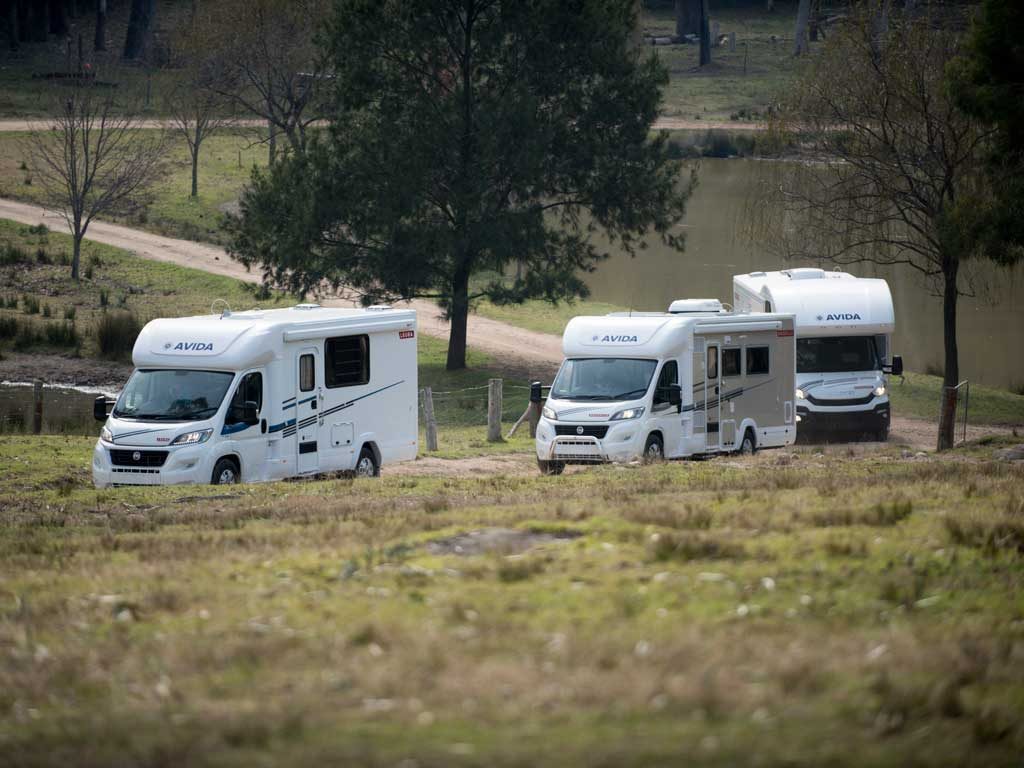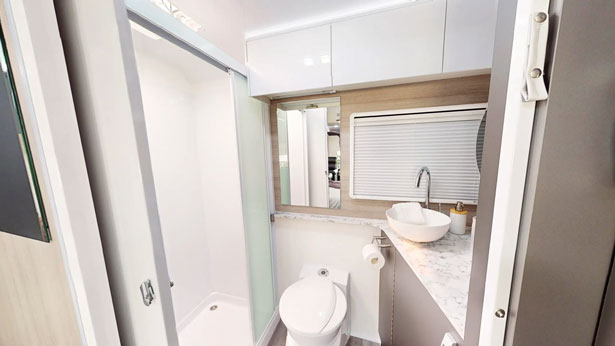
Many motorhomers believe these “legends” about diesel engines to be true. But are they? The following information applies to most turbocharged diesel motorhome engines, regardless of the manufacturer, and addresses some of the more common questions and myths associated with these diesel engines.
Warm-up
Q: Should a turbocharged diesel engine be fully warmed up to its operating temperature before being driven?
A: We’ve all heard –; literally –; this early-morning drill. There’s usually at least one diesel owner who thinks the engine must be warmed up to its full operating temperature before the motorhome can be moved out of the campsite. First, the owner starts the engine –; even before finishing that first cup of coffee –; and then proceeds to disconnect the power and hoses. Meanwhile, his campground neighbours are stirred from their sleep because of the engine’s noise.
The best advice is to be a good neighbour –; even if you’re pulling out –; by emptying your holding tanks and disconnecting all hoses and electrical connections before you start the engine. Allow the engine to warm up and your air brake system (if fitted) to pressurize while you do your final walk around. Visually check to make sure all your awnings are in their stored positions, your TV antenna is down, all jacks are up and locked, and your towed vehicle is ready to roll. This should take you approximately five to seven minutes –; all the time your engine needs to warm up and the air tank to charge. Any additional idling time merely wastes fuel, adds unnecessary wear to your engine, and annoys your neighbours.
Cool down
Q: Is it necessary to idle the engine for a period of time to allow the turbocharger to cool before shutting it down?
A: Diesel experts say cooling the engine in this manner is completely unnecessary. In fact, they contend that the turbocharger will sufficiently cool when the motorhome slows on the highway exit or while it waits for traffic to clear at a stop sign. No additional cool down time is needed. So, turn off the engine and save some fuel.
Regular Inspections
Q: How important are regular inspections and preventive maintenance?
A: According to the experts, establishing a routine inspection and preventive maintenance schedule is one of the best things you can do for your diesel engine. If necessary, create a checklist for daily, weekly, monthly, and other inspections. Here are a few points to include on your list:
- Having a service (preferably within the manufacturers network) based on the maximum time recommendations (annually in most cases) stated by the manufacturer regardless of the kilometres covered. This is important as lack of use can cause certain components and fluids (rubber components, engine oil, brake and clutch fluids for example) to deteriorate more than constant use.
- Check the engine oil level daily when you’re traveling, but don’t keep adding oil to make it reach the full mark each time. Your engine will find its own oil level comfort zone, so just make sure the level stays between the “add” and “full” marks. And don’t forget to check the oil reservoir if your engine is equipped with one. Remember, use only factory-approved oil, which should be the same brand and weight that’s already in the engine.
- Top off the cooling system with the recommended coolant/distilled water mix. Do not use tap water. If you’re using extended-life coolant, top off only with that.
- Check the engine’s air cleaner daily if you are driving in dusty areas. Replace only with the correct factory-approved filter.
- Check all belts and hoses for fraying, cracks, leaks, etc. on a weekly basis.
- Each month, check your batteries, their connections, and the cables for corrosion. Clean if necessary. If you feel uncomfortable doing this, make a note to have the technician perform this task at your next scheduled maintenance visit. Just 10 minutes a day of performing preventive maintenance will give you the peace of mind to better enjoy your motorhome.
- It is recommended to drive the vehicle in the “off” season instead of leaving the vehicle parked for extended periods without any use at all. This should include reasonable use of the brakes.



